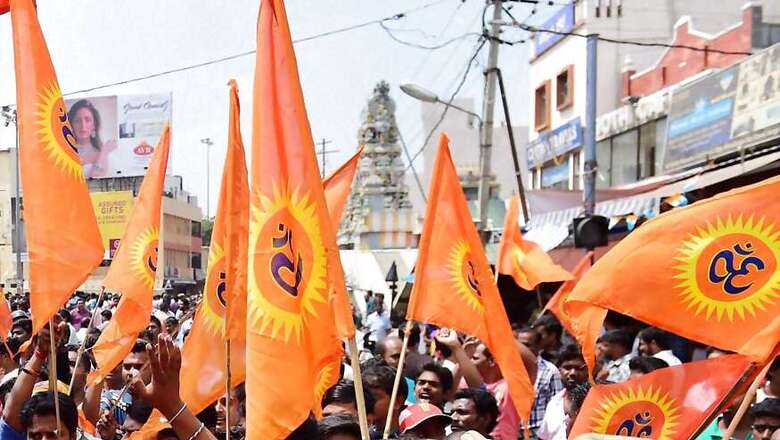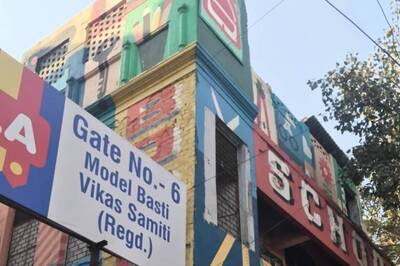
views
New Delhi: In the first Independence Day speech of his second term, Prime Minister Narendra Modi declared that his government had done more in its first 70 days than previous governments had accomplished in the last seven decades. The highlight of these 70 days has been the nullification of Article 370, a project that was especially close to the RSS.
To understand what this means from the point of view of the Sangh, News18 spoke to one of the foremost scholars of the RSS, Shridhar Damle, who has co-authored two books on the organisation with American scholar Walter Anderson, the more recent of which is ‘RSS: A view to the inside’. Excerpts from the conversation:
The abrogation of Article 370 must have worked as a morale booster for the RSS, which described the move as "bold and historical decision". What is the sense you have of the mood among the RSS top brass right now?
The abrogation of Article 370 has been on Sangh's agenda since 1947. That’s when Pandit Prem Nath Dogra, who was later appointed president of Bharatiya Jana Sangh, founded Praja Parishad and agitated for the full integration of this state with the rest of the country.
I have spoken to some RSS leaders and their confidence levels are quite high. They're saying that Article 370 was like an ulcer and that it’s good that we got rid of it. If there were some sceptics of Narendra Modi earlier within the Sangh, they've been silenced now. "We told you he will deliver" - that is what the leadership is saying in effect to its cadres.
The RSS is completely coming to terms with the Modi-Shah style of working which the Sangh wasn't comfortable with earlier. Actually, the 'full integration' of Kashmir in India is closer to RSS's idea of India. See, the Constitution of India declares India to be a union of states, a federal republic like the US where power remains with the states. Whereas RSS's concept of India is of one nation, in which core powers are with the central government which can create new states/provinces according administrative necessity.
It must have been quite a favourable Budget Session of Parliament also from RSS's point-of-view. First triple talaq was criminalised, which one could consider as the first big step towards implementing Uniform Civil Code, and then Article 370 was abrogated. Ram Janmabhoomi case is also seeing day-to-day hearings.
Yes, the past few weeks have been good from their point of view. Regarding Ram temple, the current mood in the Sangh is "Ram Mandir banne waala hai (Ram temple will be built soon)". Either the Supreme Court gives a nod to the Ram temple or the government passes a legislation to allow the construction of the Ram temple. Either way they foresee the construction of the temple.
Following this, the VHP is likely to start a movement for Kashi Vishwanath and Mathura Krishna Janmabhoomi temples. Led by jurists like retired High Court Judge VS Kokje and Supreme court lawyer Alok Kumar, VHP is likely to pursue legally for resolution of Kashi Vishwanath and Mathura Krishna Janmabhoomi disputes, by arguing for making the status quo permanent, and start a public campaign for the same.
With regards to Uniform Civil Code, I don't think they will push the government to hurry the matter. A lot is already going on. They will take their time with it. My sense is they will try to first build a consensus among various communities, Christians for instance.
Incidentally [MS] Golwalkar (the second RSS chief) was the biggest critic of legally implementing UCC. He had argued that you cannot change people by law - the practices of child marriage and dowry still persist he had argued - you needed to change their mindset and that was a longer project. So I think the RSS would not want to push the government immediately for a legislation in this regard.
So what do you think are going to be the next big agendas for the Sangh? Prime Minister talked about the population explosion in the country, for instance. How serious is the Sangh about it?
It so happened that I once met Bhaurao Deoras (Murlidhar Deoras, a very senior RSS leader and the younger brother of the third RSS chief Madhukar Dattatraya Deoras alias Balasaheb Deoras) in RSS headquarters in Delhi. He spent an hour with me discussing population explosion. This was back in 1988. He said he was very interested in listening to my views on family planning.
He told me then that population growth was going to be a huge issue for the country today or tomorrow. I think he was very much interested in understanding China's 'One child' policy. So yes the issue of population explosion is quite close to the RSS, they will be following it very closely and cautiously.




















Comments
0 comment